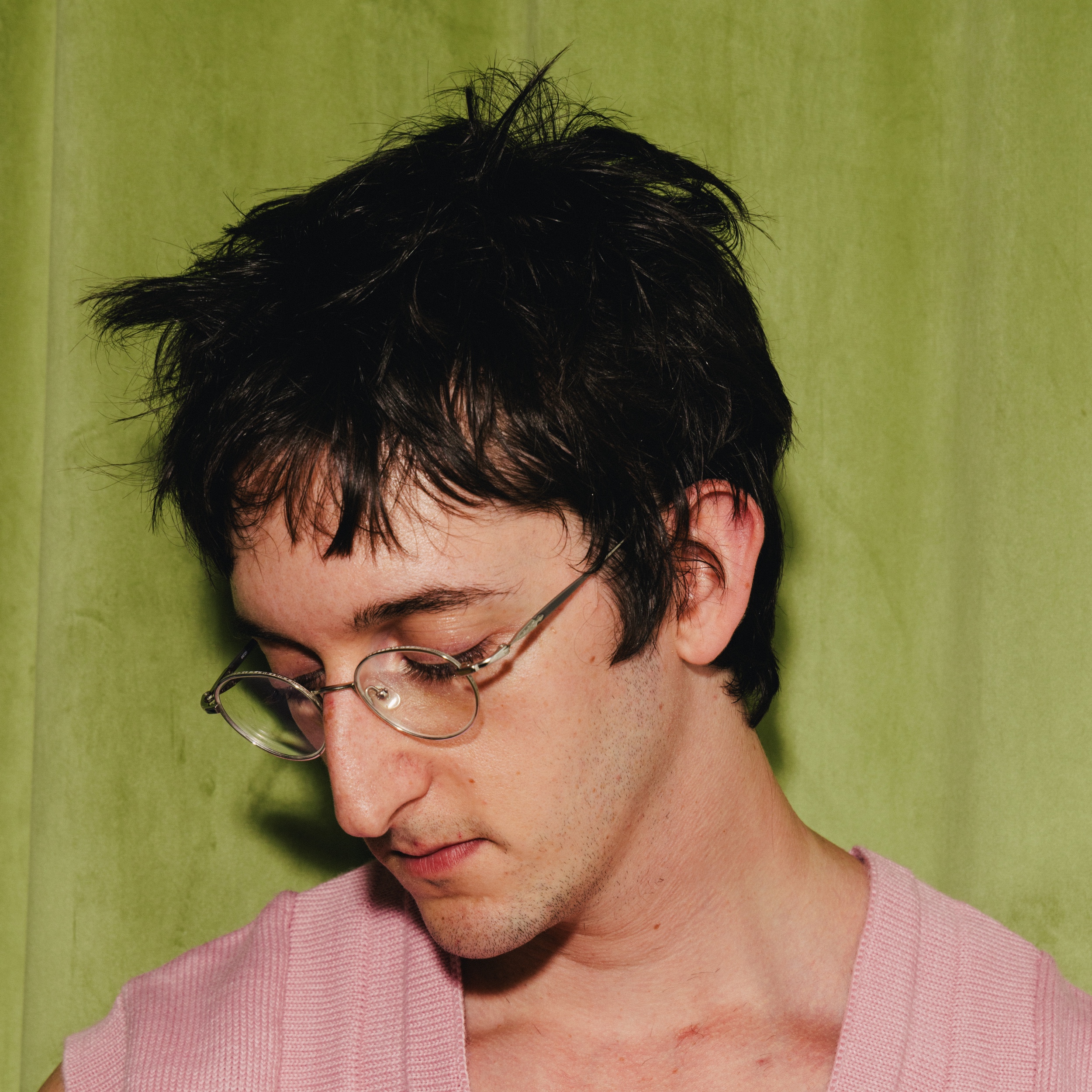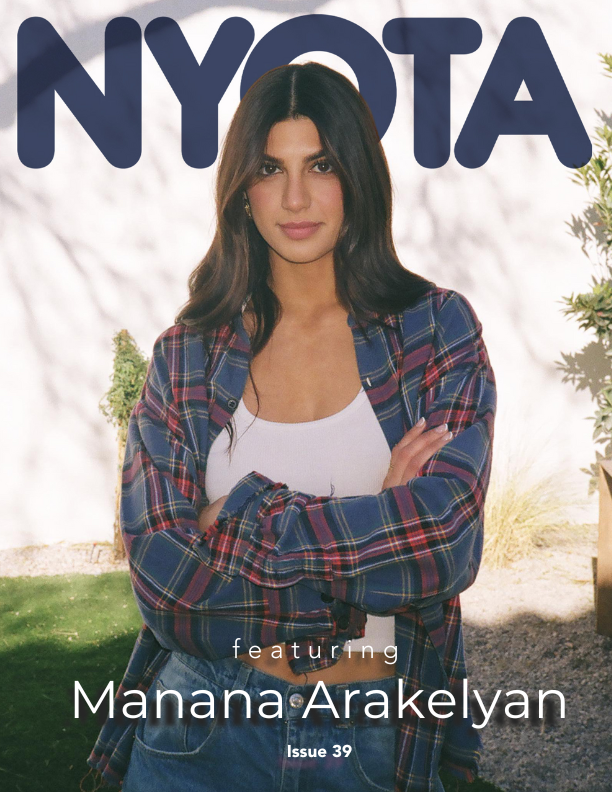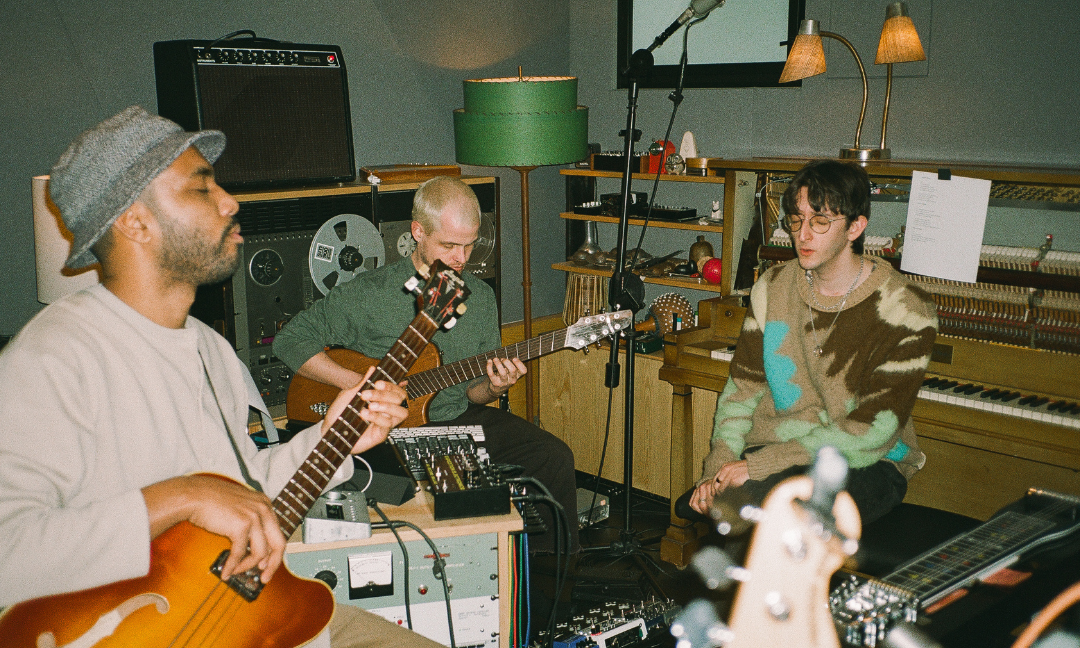Interview by Carol Wright | Feature Image: Abby Stearns | Photographer: Sonia Broman
Eric Gabriel grew up in the city that never sleeps, soaking up the creativity and culture around every corner. So, it is no surprise that he found and pursued his passion for music. Gabriel talked to NYOTA about his upcoming album Samara, collecting words and phrases for songs, and his process when working on a solo record.

Being born and raised in New York is a unique experience, especially considering how much art and culture you’re surrounded by in that city. How do you think living there shaped your creative journey?
My dad would take me to a lot of shows in the city when I was growing up. I remember one concert, I must have been about eight or so, at LPR in the village. It was 21 and up. In line the bouncer was giving my dad trouble, understandably, for bringing a kid. And this big bouncer-sized guy––I guess not making much progress with my dad––decided to shift his attention, paused, looked me right in the eyes, and told me: ‘you know we don’t serve chicken fingers here?’ I must have been mortified. But they let us in. Growing up surrounded by art, music, going to museums, I think it gave me a sense of possibility and wonder and also maybe taught me not to be discouraged by places that don’t serve chicken fingers.
I actually went to LPR this past week to see Sam Evian (who produced Melt’s record) and all these incredible artists, a number of whom collaborated on my album, who were performing as part of this kind of celebration of Flying Cloud––Sam’s studio. Living in Brooklyn now, I find so much inspiration from seeing shows at small local venues. I try to see as much music as I can. There are so many people doing amazing things and it pushes me a lot.
Many people love music or songwriting but don’t pursue those things professionally. What motivated you to see music as a career rather than a hobby?
I don’t know that I could identify a motivation. I co-founded Melt in 2017 and we got some success early on that let us start playing shows around. I kept at it and now am still doing it. I try my best to keep thinking of it as a choice, or choices, as opposed to a career. It’s a privilege to spend my time making music, to play music for other people, and to invest my time in a creative pursuit. Obviously it’s a job too and it can feel like a job, for sure, but I hope to maintain that sense of gratitude. Ultimately, I guess the real difference between seeing music as a career versus a hobby is that someone down the line had the grand idea to start paying me to do it.
How do you approach the writing and song creation process when working with your bandmates versus when creating a solo record?
With the band, we have the benefit of time, past and future––both to move slowly with an arrangement as well as years of playing together. It’s almost a process of finding the best arrangement of the song that works for the band that I think also has a lot to do with how it translates live. Playing shows has always felt the most natural for us so I think that kind of live-show mentality is often brought into the writing and arrangements, too.
On my own record, the arrangement process was really immediate. We recorded almost everything live with no click, no headphones, no playback in the studio, and few overdubs. The core of the track––drums, bass, guitar, keys––was finished within a few hours of the musicians hearing the song for the first time. So the process was more like finding the best version of the song in the context of that moment in time and with that group of people. It’s a bit more ephemeral and I think assumes there’s no “right” way to present a song, there are just choices and subsequently better ways to become aligned on those choices. I’ve been excited by this kind of process recently and it’s a lot of what I’ve adopted when I produce for others, too.
“Your Name” is a song I wrote that ended up on Melt’s album and on my album too, so maybe there you can hear some differences in the way the two processes can play out. I like both versions.
Tell our readers a bit about your single “Living Proof.” What story is the song telling?
The song is based on a number of things my grandma said to me before she passed. A few moments too. This is one of the songs I wrote really for myself as a way to process an experience. Not all of my songs are like that.
You’re preparing to release your debut solo album, Samara, which was recorded almost entirely live to tape. How did recording the songs live impact their composition and the overall creative process?
It was crucial to the way the songs sound. Philip Weinrobe, who produced the album, has a really special way of making everyone approach a song and their instrument with a sense of novelty. And so everyone’s journeying forward to make up their parts with maybe some surprise and uncertainty and openness about where the song will wind up––but we’re all moving there together––which creates this beautiful generative and collective creativity. And I think it’s that kind of feeling that drew me to make music in the first place, the specific kind of excitement and wonder that comes along with making or doing something for the first time. And then we would immediately hit record once we landed somewhere that felt right for each song. So the recording was all about capturing that energy and it’s that collective process which defines the sound.
How long has it taken you to put Samara together? Was it a project that came together in between touring with Melt, or did the inspiration for many of the songs hit you all at once?
Samara is a collection of songs written between 2020 and 2024. The oldest are “Slow Burn” and “Long Gone.” At the same time, I usually write slowly and often rewrite songs, so even the old ones may have new elements. On the other side, I wrote “Saturn’s Rings” the week we recorded it. I was definitely balancing this project in between Melt’s schedule at the time. I recorded Samara in two chunks––the first in September 2023 and the second in January 2024. After the September session, I left on tour with Melt for most of the Fall and then went straight to recording the band’s debut album at Sam Evian’s studio in the Catskills in December. We didn’t start recording each day until around noon, and I’d wake up early––maybe seven or so––and work on the songs for my record before we got started. Most of the demos for the January sessions I made at Flying Cloud. It was a bit funny to be in such a beautiful studio recording iPhone voice memos.
While posting on social media is not a core part of a musician’s creative process, is it helpful to use social media as a sounding board when figuring out what songs resonate with listeners, what visuals appeal, etc.?
Yeah it can be helpful. I know for some artists it’s a real source of community, which is cool, and I have friends who are amazing at connecting with fans and people online. It’s a real skill. But for me personally, I’d weigh the feedback of someone in a physical space 1000 times higher than on social media. Ultimately, that person chose to leave the house and show up…so yeah I’d weigh that over the passing thought of someone who’s between watching a clip of a baby elephant becoming friends with a monkey and Timothée Chalamet looking sad at the Oscars. Performing is the main way for me to see what’s working well and to test things out. It makes more sense to me at least.
What advice do you have for aspiring musicians?
I think every musician I know is aspiring in some way. I’m certainly aspiring. That said…make music with your friends. Listen to your favorite songs and think about why you like them. Do those things. Go outside. Write bad songs.
This story first ran in Issue 39: The Digital Issue. Read more from the issue here


